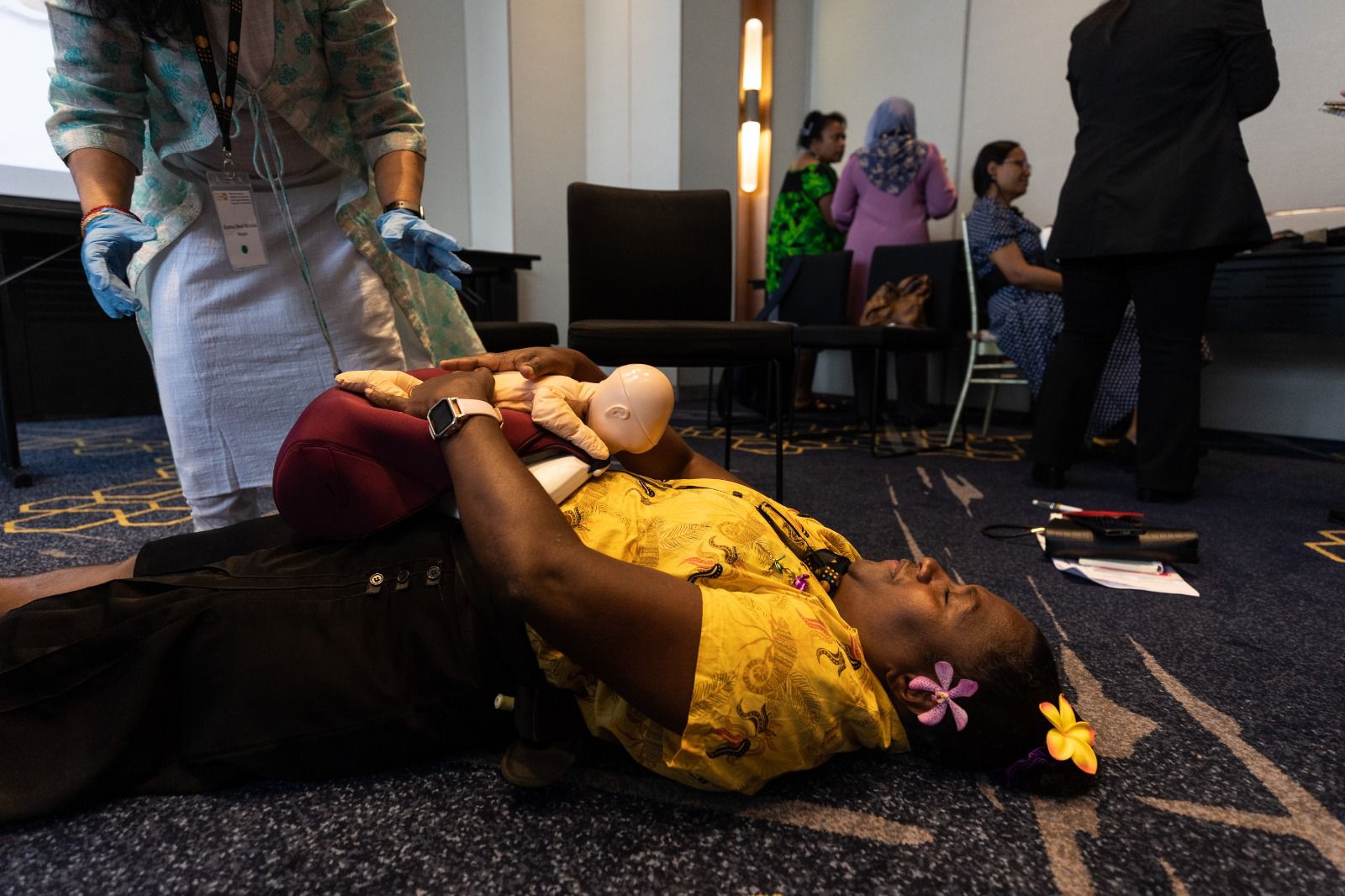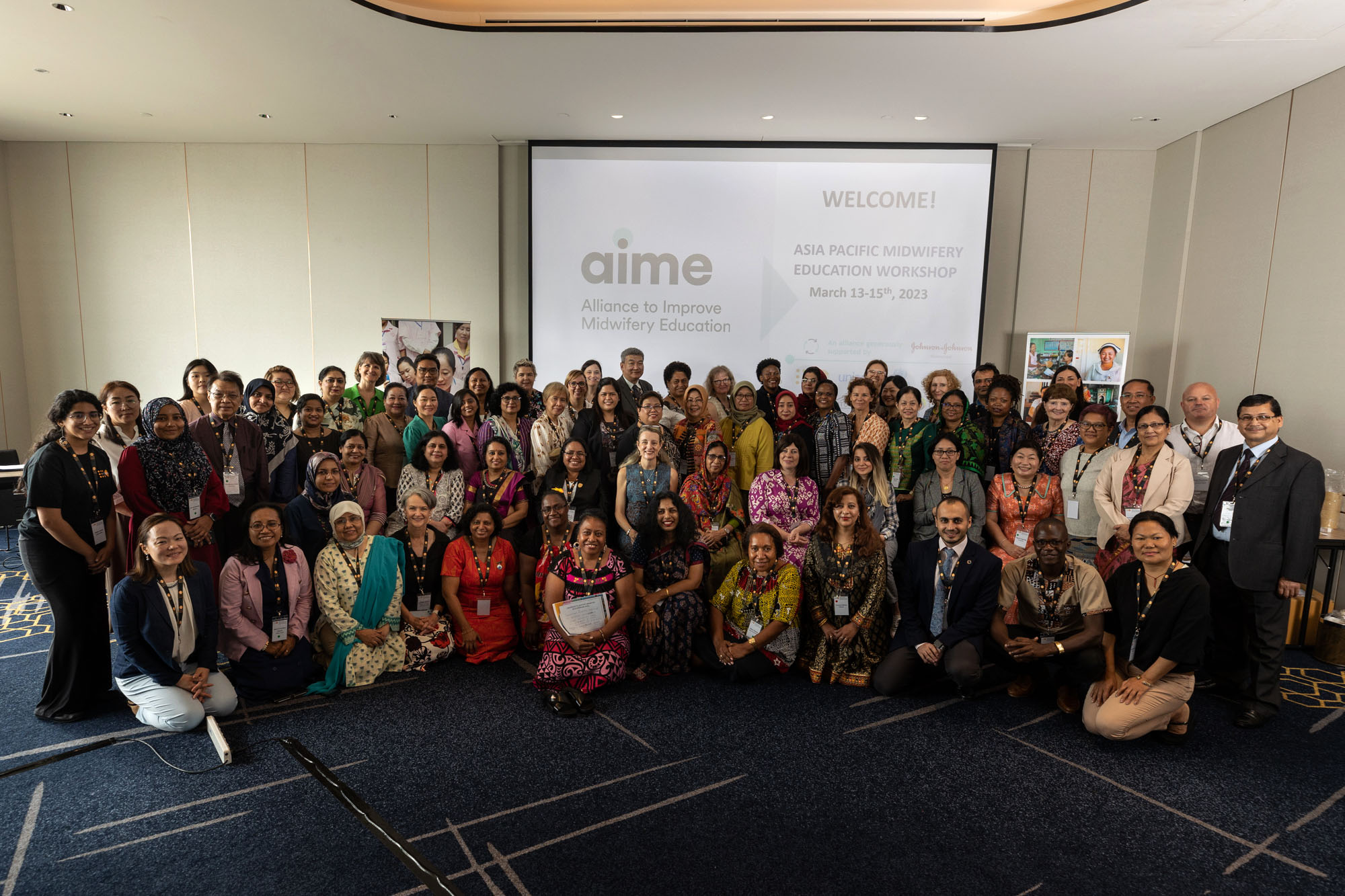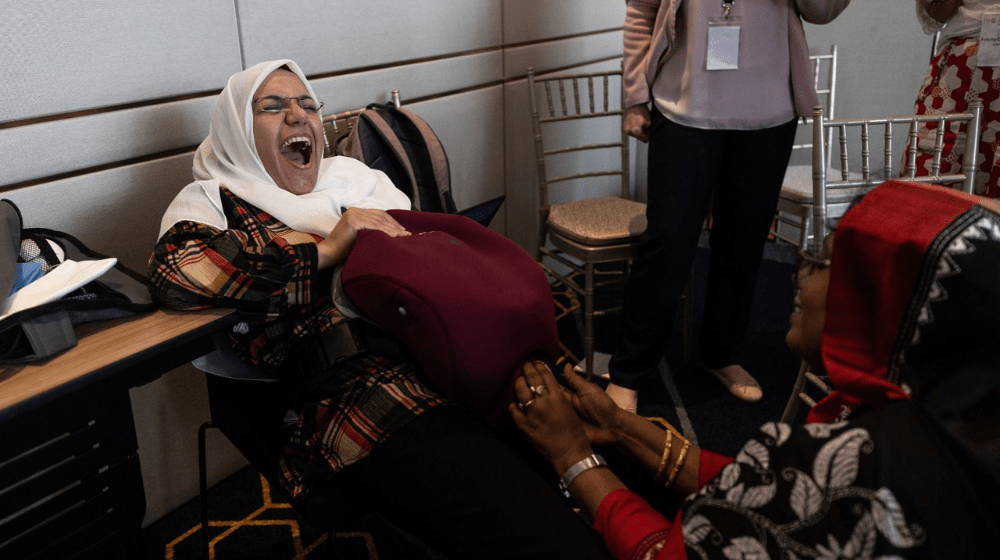Midwives provide 90 per cent of all essential sexual and reproductive health services. Yet they comprise only 10 per cent of the reproductive sexual, reproductive, maternal, newborn and adolescent health workforce. Midwives also save lives - if skilled midwives attended every birth, 4.3 million mothers and newborns could be saved by 2035. Investment in quality education for midwifery is urgently needed. This is why the United Nations Population Fund (UNFPA) hosted a regional workshop for midwifery educators from 19 countries.
"In Asia and the Pacific, ten women die every hour in pregnancy or birth. Our collective efforts to educate midwives according to international standards is a proven pathway to end this tragedy," said UNFPA Regional Senior Advisor for Sexual & Reproductive Health and Rights, Catherine Breen Kamkong.
Ms. Been Kamkong was speaking at an initiative which brought together global, regional and national partners working on midwifery education to exchange knowledge and unite on implementing a global 7-step action plan to strengthen midwifery education. The event highlighted successful initiatives such as Pakistan’s new two-year Bachelor of Science in Midwifery programme and Afghanistan’s mentorship programme for midwives designed by the Afghan Midwives Association with UNFPA’s support.
“I am happy to be here, to be part of the group and able to exchange knowledge and practices and to know that midwives’ skills can be developed, which is improving the way we work with midwives,” said Sengmany Khambounheuang, President of Lao Association of Midwives.
The workshop was hosted by UNFPA and conducted by the Alliance to Improve Midwifery Education (AIME), a global alliance established by UNFPA, in partnership with ICM, WHO, UNICEF, Liverpool School of Tropical Medicine, Jhpiego, Laerdal Global Health, Burnet Institute, Maternity Foundation, and World Continuing Education Alliance and supported by the Johnson and Johnson Foundation.
Educators from 19 countries were introduced to new educational resources and programmes to enhance the quality of midwifery teaching for improved sexual reproductive, maternal, newborn, and child-adolescent health services. These included the UNFPA Faculty Development Programme and Continued Professional Development Framework, designed in partnership with Burnet Institute, and a new World Health Organisation Midwifery Toolkit.
“The sessions have been very informative. I feel motivated having learnt from educators from other countries. It has challenged me to develop our programmes further. I can see they have faced many difficulties [in developing midwifery education programmes]; I have learnt a lot from what they have shared,” said Ms. Senemelia Hataogo, Head of Midwifery, Obstetrics and Paediatrics Department, Fiji National University.
Moreover, the training facilitated a critical exchange of ideas and personal experiences among participants, which could be applied in their respective countries. “Many times you find that someone has already got a solution to a problem that you have, and this way, we’re able to share our challenges but also share all of our solutions, helping each other to move forward,” said the Chief Executive of International Confederation of Midwives, Sally Pairman.

The training was a significant step towards improving the quality of midwifery education and reducing maternal and neonatal mortality rates in the Asia-Pacific region.
“When we educate more midwives, it reduces the maternal mortality ratio in the country, and we have seen significant evidence to prove that, but we need to educate more,” said the President of Papua New Guinea Midwifery Society, Ms. Mary Sitaing.

Midwifery educators also learnt about midwifery faculty development, the importance of continuing professional development, and how to use technology and innovation to enhance midwives’ development. “It is a great opportunity to be a part of this workshop, and we have gathered a lot of information and interacted with different countries,” said Ms. Erum Yaqub, Midwifery Educator, Bachelor of Science in Midwifery programme in Pakistan.
The midwifery educators received insights on resources they can use for instant access to evidence-based and current clinical guidelines. “My deep appreciation to all colleagues for sharing best practices, emerging policies and innovative and digital solutions, and for cementing regional connections to enhance the quality of midwifery care, for the sake of the women and girls. Together we can achieve our common goal,” said Pros Nguon, UNFPA Cambodia Programme Analyst for Sexual and Reproductive Health and Midwifery.
To close the training, Dr. Eva-Charlotte Roos, Senior Health and Sexual and Reproductive Health Advisor at the Swedish International Development Cooperation Agency (Sida), reminded all trainers of our shared unfinished mission to improve access to quality maternal healthcare, “We are faced with an unacceptable fact that every two minutes, a woman or a girl dies from preventable causes related to pregnancy or childbirth, 99 per cent of these deaths occur in low and middle-income countries.”


